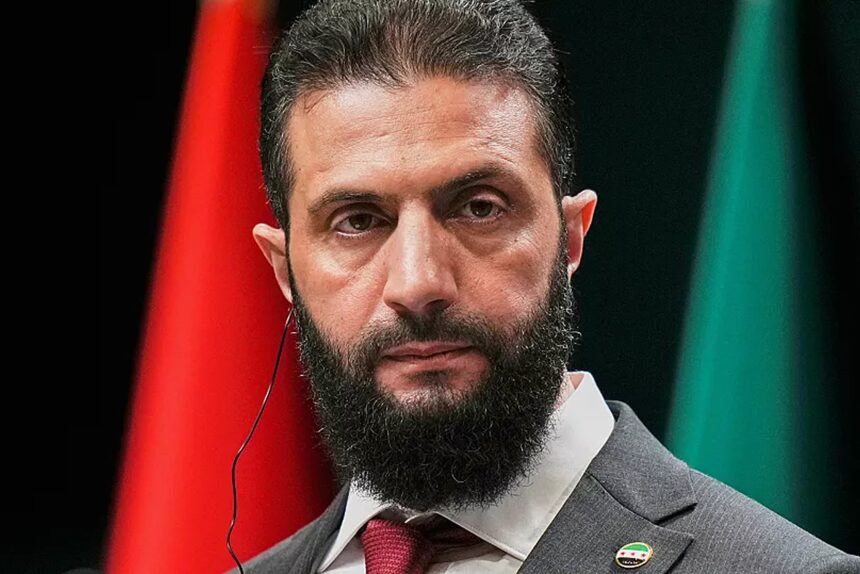In a historic visit to the White House on November 10 the first ever by a Syrian head of state President Ahmad al-Chareh declared that Israel must withdraw to its pre–December 8, 2024 borders before a final peace agreement can be reached.
In an interview with The Washington Post, al-Chareh said that “many international actors, including President Donald Trump, support this position,” emphasizing that any lasting security deal must begin with full territorial respect for Syria’s sovereignty.
The Syrian leader criticized what he called Israel’s expansionist ambitions, stating that the southern region of Syria “cannot and will not be fully demilitarized.” He reminded that his government had already removed Iranian militias and Hezbollah units from its territory, accusing Israel of conducting over 1,000 airstrikes since the fall of the Assad regime. “Syrian territory must be under Syrian control,” he stressed.
On relations with the United States, al-Chareh underlined mutual security and economic interests, welcoming the temporary suspension of the Caesar Act sanctions. According to U.S. Secretary of State Marco Rubio, the sanctions imposed in 2019 have been paused for 180 days to support Syria’s post-war economic recovery.
The Syrian president insisted that Syria is fully capable of defeating ISIS independently, but highlighted the need to integrate Kurdish forces into the national security structure to ensure long-term stability. “The absence of state control,” he warned, “creates fertile ground for the resurgence of terrorist organizations.”
Al-Chareh also addressed tensions affecting the Alawite and Druze minorities, comparing Syria’s post-war reconstruction to the aftermath of the American Civil War, stressing that rebuilding state institutions and the rule of law after six decades of dictatorship “will take time and patience.”
Speaking on relations with Russia, al-Chareh affirmed the existence of shared strategic interests, but noted that the legacy of Bashar al-Assad remains “a sensitive issue.” He said that while Syria recognizes its long alliance with Moscow, it will nonetheless “seek justice for the crimes committed under Assad’s rule.”







